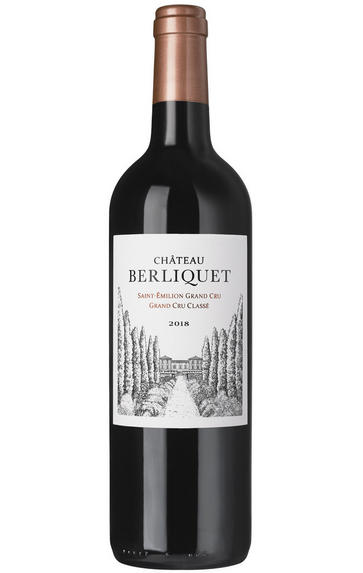
2018 Château Berliquet, St Emilion, Bordeaux
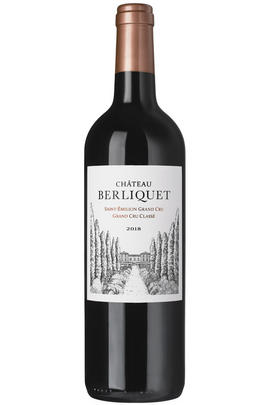
Critics reviews
The blend is 78% Merlot and 22% Cabernet Franc.
The 2018 Berliquet represents a major stylistic shift under the guidance of Nicolas Audebert and the technical team at Canon. Plump and juicy, the 2018 offers an explosion of fruit that gives it a distinctly exuberant personality. A joyous, radiant wine, Berliquet expresses the natural radiance of the vintage in a forward, juicy style that offers tons of near and medium-term appeal. The wine's fruit and overall density are both impressive, to say the least. This is the first vintage made by the Nicolas Audebert and the technical team at Canon following Chanel's acquisition of the estate in 2017. Tasted four times.
Drink 2024 - 2033
Antonio Galloni, Vinous.com (April 2019)
The 2018 Berliquet is composed of 78% Merlot and 22% Cabernet Franc and has 14.5% alcohol. Deep garnet-purple in color, it slowly unfurls in the glass to reveal a classic nose of ripe black plums, wild blueberries and pencil shavings with hints of unsmoked cigars, tilled soil and red roses. The medium to full-bodied palate is chock-full of blue and black fruit preserves, supported by plush tannins and impressive freshness, finishing long and mineral laced. Since the Chanel takeover and under Nicolas Audebert’s direction, the development of this site and the wine are truly impressive. I suspect a lot of selection has gone into making this 2018, and the results reveal a top-tier Saint-Émilion in the making.
Drink 2023 - 2040
Lisa Perrotti-Brown, Wine Advocate (March 2021)
Blackberry, plum, blueberry and some stone and crushed cement on the nose. Full body with firm, chewy and ultra fine tannins that will soften nicely. I like the lightly smoked nuts and chocolate. Needs time to come around.
Try after 2025
James Suckling, JamesSuckling.com (March 2021)
About this WINE
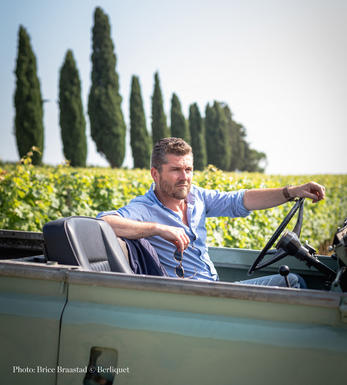
Château Berliquet
Ch. Berliquet comprises a square, 10-hectare handkerchief of St Emilion vineyard, surrounded on three sides by Ch. Canon’s vines. Its long history dates back to the 1740s, making it one of the appellation’s oldest vineyards. It is a Grand Cru Classé.
Until as recently as the 1970s, Ch. Berliquet's wine was made by the local co-operative. The quality was good but rather unexciting. Since 1978, the wine has been vinified and matured at the château and has improved beyond recognition.
In 2017, Ch. Berliquet was bought by Chanel, who brought in winemaker Nicolas Audebert to further refine the estate’s offering. Nicolas brought with him a wealth of experience, most recently from a decade in Argentina where he oversaw the Cheval des Andes project (a collaboration between Ch. Cheval Blanc and Terrazas de los Andes).
Nicolas brought in mapping and terroir specialists Géocarta and Kees Van Leeuwen to create a soil survey of the vineyard. Based on this deep knowledge of the clay-limestone plateau, and clay and sand slopes, Nicolas has formulated phased plans to variously grub up, replant and co-plant areas of the vineyard.
“We’ll replant a third of the vineyard with more Cabernet Franc than Merlot,” explains Nicolas. “We really consider that the terroir can bring Cabernet Franc to the highest expression of fruit, elegance and precision.”
In the winery, vinification takes place in stainless-steel tanks. The wines are aged for 16 months in oak, with 50% new barrels. The cellars have been carefully renovated in recent years.
You can read an interview with Ch. Berliquet’s winemaker Nicolas Audebert here.
Ch. Berliquet has made a strong commitment to working sustainability. In addition to introducing environmentally responsible practices in the winery, they have recently planted hedges, grasses, walnut trees and introduced green corridors to increase biodiversity.
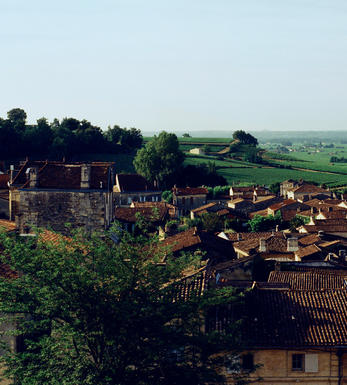
St Émilion
St Émilion is one of Bordeaux's largest producing appellations, producing more wine than Listrac, Moulis, St Estèphe, Pauillac, St Julien and Margaux put together. St Emilion has been producing wine for longer than the Médoc but its lack of accessibility to Bordeaux's port and market-restricted exports to mainland Europe meant the region initially did not enjoy the commercial success that funded the great châteaux of the Left Bank.
St Émilion itself is the prettiest of Bordeaux's wine towns, perched on top of the steep limestone slopes upon which many of the region's finest vineyards are situated. However, more than half of the appellation's vineyards lie on the plain between the town and the Dordogne River on sandy, alluvial soils with a sprinkling of gravel.
Further diversity is added by a small, complex gravel bed to the north-east of the region on the border with Pomerol. Atypically for St Émilion, this allows Cabernet Franc and, to a lesser extent, Cabernet Sauvignon to prosper and defines the personality of the great wines such as Ch. Cheval Blanc.
In the early 1990s there was an explosion of experimentation and evolution, leading to the rise of the garagistes, producers of deeply-concentrated wines made in very small quantities and offered at high prices. The appellation is also surrounded by four satellite appellations, Montagne, Lussac, Puisseguin and St. Georges, which enjoy a family similarity but not the complexity of the best wines.
St Émilion was first officially classified in 1954, and is the most meritocratic classification system in Bordeaux, as it is regularly amended. The most recent revision of the classification was in 2012
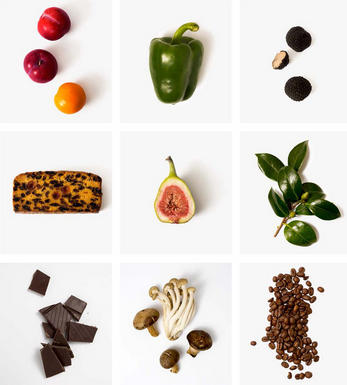
Merlot
The most widely planted grape in Bordeaux and a grape that has been on a relentless expansion drive throughout the world in the last decade. Merlot is adaptable to most soils and is relatively simple to cultivate. It is a vigorous naturally high yielding grape that requires savage pruning - over-cropped Merlot-based wines are dilute and bland. It is also vital to pick at optimum ripeness as Merlot can quickly lose its varietal characteristics if harvested overripe.
In St.Emilion and Pomerol it withstands the moist clay rich soils far better than Cabernet grapes, and at it best produces opulently rich, plummy clarets with succulent fruitcake-like nuances. Le Pin, Pétrus and Clinet are examples of hedonistically rich Merlot wines at their very best. It also plays a key supporting role in filling out the middle palate of the Cabernet-dominated wines of the Médoc and Graves.
Merlot is now grown in virtually all wine growing countries and is particularly successful in California, Chile and Northern Italy.


Buying options
Add to wishlist
Description
78% Merlot, 22% Cabernet Franc.
Berliquet was bought by Chanel in 2017, joining its neighbour Château Canon and sharing its team. There is an ambition to increase the Cabernet Franc to 50%, as limestone dominates the small 10-hectare vineyard. The alcohol is 14.5%, but is imperceptible in the tighter, crunchy and drier style. One of the more forthright St Emilions of the vintage.
Drink 2026 - 2038
Berry Bros. & Rudd
wine at a glance
Delivery and quality guarantee